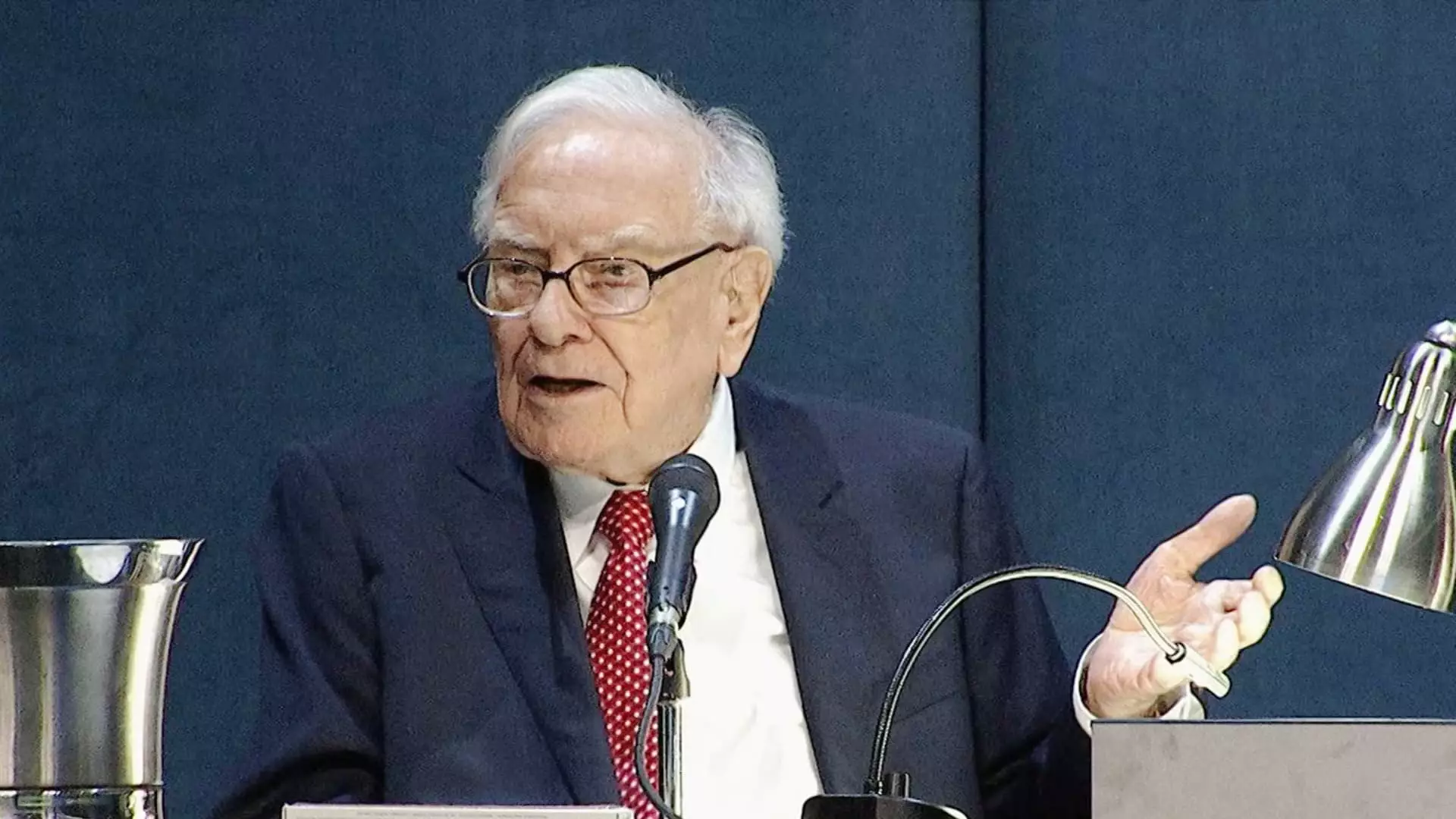Warren Buffett, known as the Oracle of Omaha, has built an empire around a unique investment philosophy focused on buying and holding companies for the long haul. His selling decisions, therefore, carry substantial weight in the financial community, often being interpreted as a signal of deeper issues within the respective companies or even entire industries. Reflecting on Buffett’s approach, we can gain insight into not only his individual investment choices but also broader themes in the market today.
Buffett’s philosophy emphasizes a long-term perspective; he prefers to hold onto stocks indefinitely, banking on their intrinsic value that compounds over time. This strategy stems from a profound belief in the durability of competitive advantages and the quality of management. In 2009, Buffett expressed his hesitance in selling long-held stocks, positing that if he believes he made the correct investment choice initially, he should ride out the fluctuations of the market. However, he does not shy away from acknowledging that circumstances can change, warranting a reevaluation of prior beliefs.
Buffett’s decision to divest from certain stocks illuminates his pragmatism. When he feels that a company’s competitive edge has diminished or if managerial integrity is questionable, he isn’t afraid to pull the plug. The situation with his former newspaper investments provides a salient example. Initially viewing community newspapers as robust franchises, the advent of digital media and falling advertising revenues led him to reassess this stance. By 2020, he had divested completely from his newspaper holdings, demonstrating his flexible yet principled investment approach.
A more recent case study of Buffett’s adherence to this investment philosophy—and its adjustments—is his dramatic sale of Bank of America (BofA) shares beginning mid-July 2023. Having been a fervent supporter of BofA since he took a position during the 2011 financial turmoil, the rationale behind the sale of approximately $9 billion worth of shares raises eyebrows. His original stake was fortified by the purchase of preferred stock and subsequent conversions that rendered Berkshire Hathaway the largest single shareholder.
However, after the tumultuous years of 2022 and 2023, marked by heightened scrutiny and risk in the banking sector post the regional banking crisis, Buffett’s caution began to surface. The controlled chaos that enveloped banks during situations like the collapses of Silicon Valley Bank and Signature Bank seemed to ignite uncertainties in Buffett’s otherwise steady resolve. The evolution of fintech and digitalization further complicated the dynamics of banking, prompting a sense of apprehension from even the most seasoned investors.
Buffett’s apprehensions regarding the banking sector reflect a larger conversation about confidence in financial institutions. By 2023, he articulated a growing uneasiness among the American public regarding banking clarity. His observations suggest that myriad factors, including previous crises and the turn toward digital banking, have nuanced public perception and foundational trust in banking as an institution. This shift could lead to unexpected consequences, reshaping how investors view and interact with these financial entities.
The volatility in banking prompted Buffett to reconsider his position not just with BofA but across various banks within his portfolio. In recent years, he has divested from numerous banking investments, including major players like JPMorgan and Goldman Sachs. As Buffett continues to offload stakes, the possibility looms of crossing significant shareholder thresholds, leading to a more opaque understanding of his investment behavior.
In retrospect, Warren Buffett’s strategic divestments serve as a powerful reminder that even the most steadfast investors must remain adaptive in the face of changing market dynamics. His recent actions indicate a paradigm shift, where identifying potential risks becomes pertinent, prompting a thorough evaluation of previously held beliefs.
Amidst the complexities of stakeholder trust, regulatory frameworks, and digital innovation, Buffett’s caution serves as a warning not only to him but to investors worldwide about the necessity of vigilance and adaptability. The impermanence of competitive advantages compels a reevaluation of what it means to be a long-term investor in a volatile market. As the landscape continues to evolve, inspired by Buffett’s actions, investors may need to recalibrate their strategies to accommodate a new era of investment dynamics, understanding that even the most reliable giants can falter.


Leave a Reply